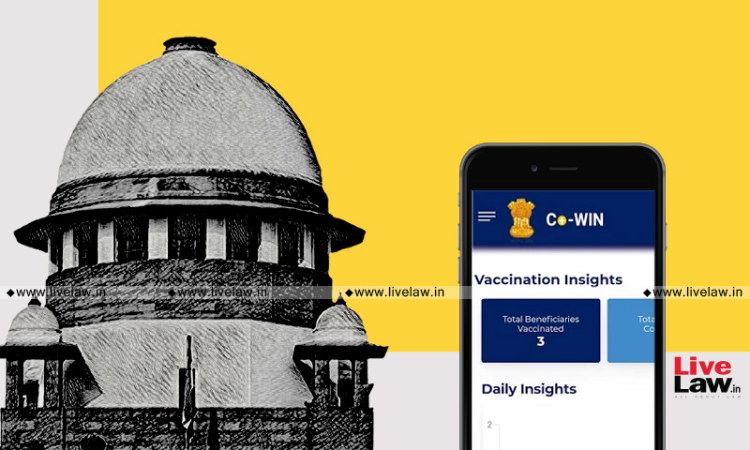'Digital Divide Will Have Serious Implications On Right To Equality & Health': Supreme Court On CoWIN Portal
Radhika Roy
2 Jun 2021 6:41 PM IST

Next Story
2 Jun 2021 6:41 PM IST
The Supreme Court has flagged the digital divide afflicting the accessibility to the CoWIN portal in its latest order in the Suo Moto COVID case [In Re Essential Distribution of Essential Supplies and Services During Pandemic], stating that it could have serious implications on right to equality and right to health."A vaccination policy exclusively relying on a digital portal for...
